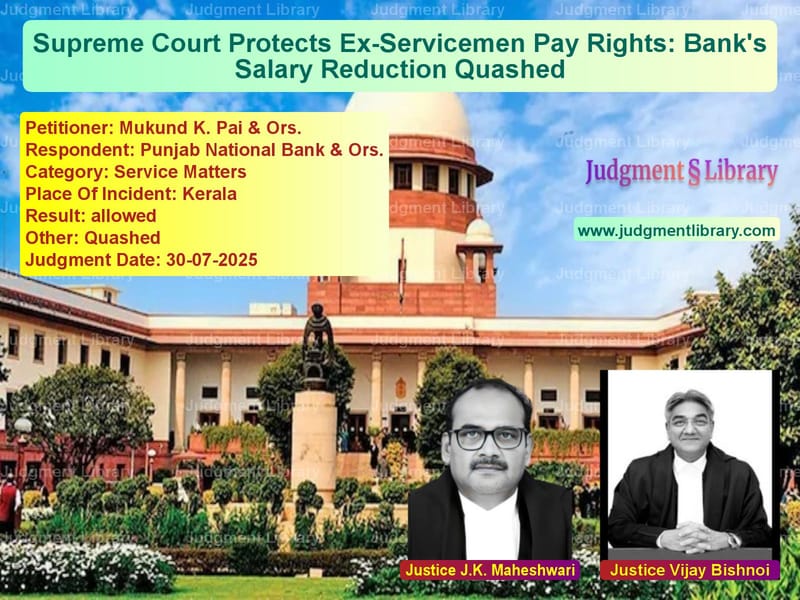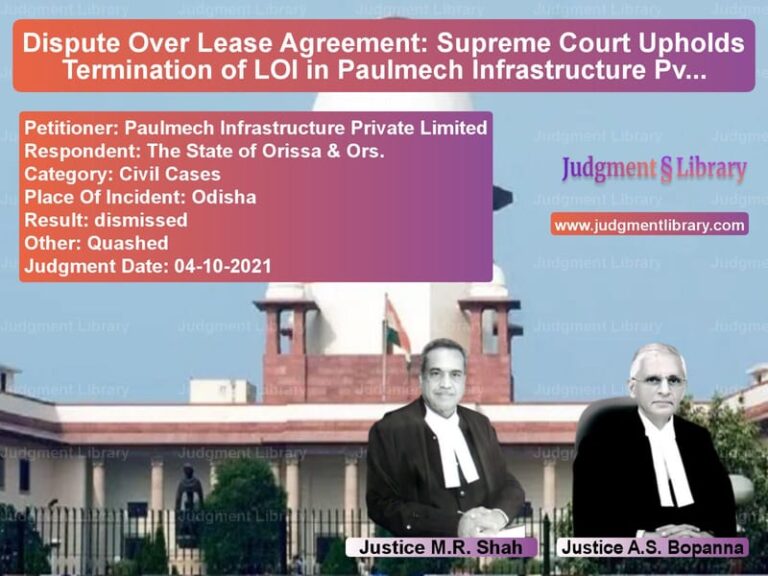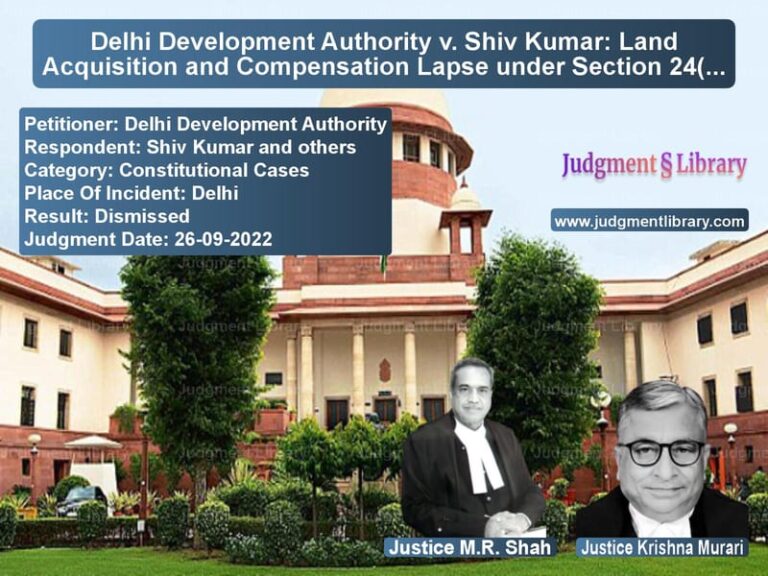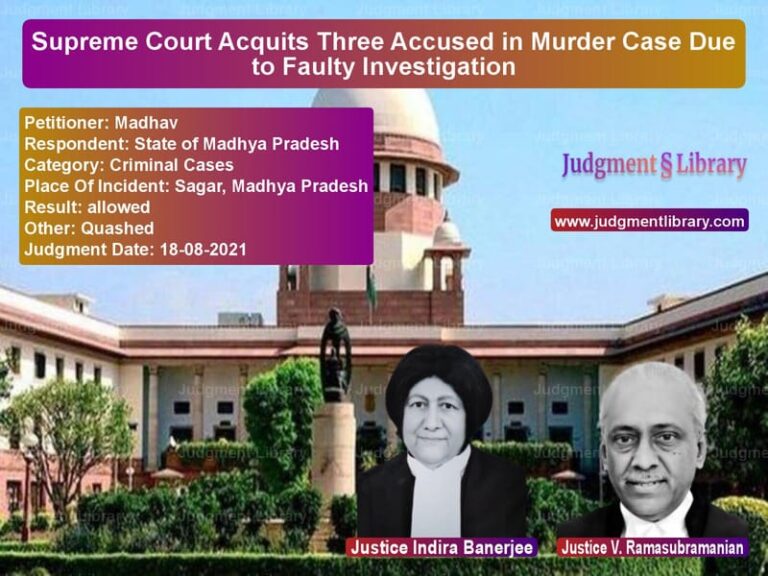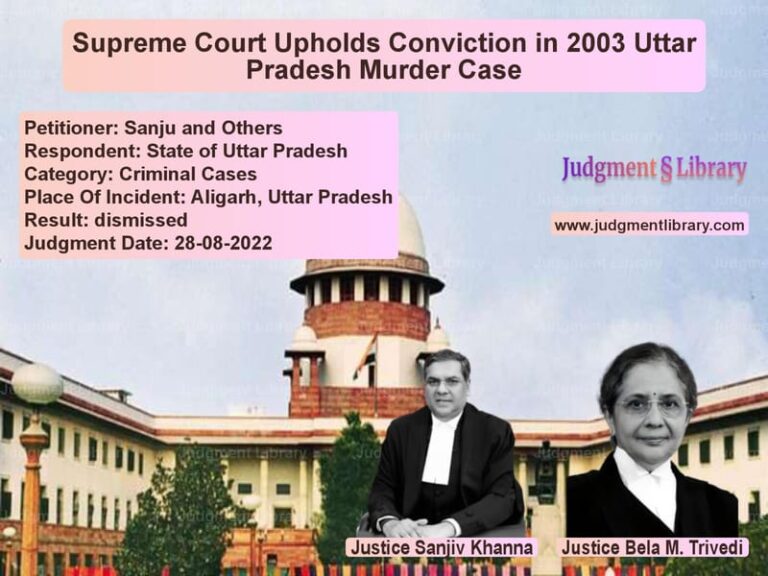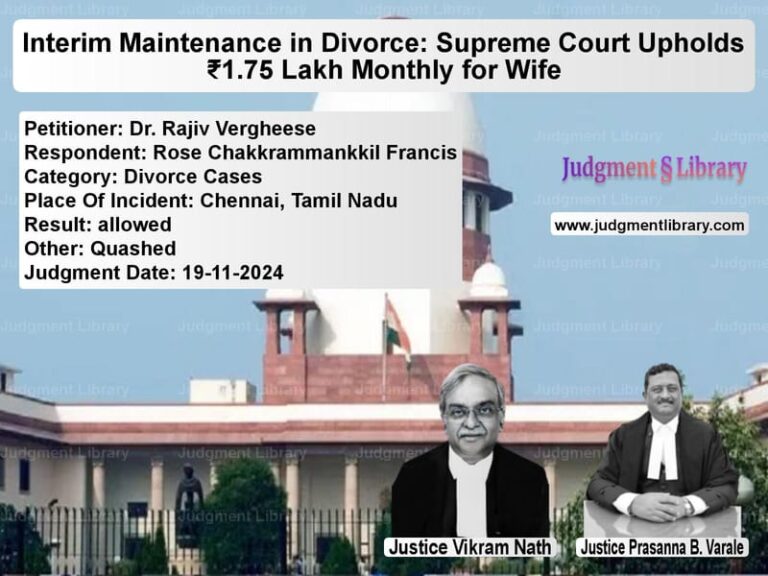Supreme Court Protects Ex-Servicemen Pay Rights: Bank’s Salary Reduction Quashed
In a significant victory for ex-servicemen across India, the Supreme Court has delivered a landmark judgment protecting the pay rights of former defense personnel who take up re-employment in public sector banks. The case involved five ex-navy personnel who faced substantial salary reductions years after being re-employed by Punjab National Bank, highlighting the delicate balance between bureaucratic procedures and the welfare of those who have served the nation.
The appellants, after honorable retirement from the Indian Navy, were re-employed with Punjab National Bank as Single Window Operator-A in the Clerical Cadre between 2015 and 2017. Initially, they were allowed to draw basic pay ranging from Rs. 34,160 to Rs. 40,710, but in 2018, the bank suddenly reduced their salaries to Rs. 31,540 across the board, citing clarifications from the Indian Banks Association. This reduction not only affected their current earnings but also had implications for their future retirement benefits, creating financial uncertainty for these veterans who had dedicated their careers to national service.
The Legal Battle Begins
The ex-servicemen challenged this arbitrary pay reduction before the Kerala High Court, where initially, justice seemed to prevail. The Single Judge of the High Court ruled in their favor, recognizing that the bank’s actions violated established guidelines meant to protect ex-servicemen during re-employment. However, this victory was short-lived as the Division Bench of the same High Court later set aside this judgment, forcing the veterans to approach the Supreme Court as their last resort.
The core of the dispute revolved around the interpretation of the 2014 guidelines issued by the Department of Financial Services, which specifically govern the pay fixation of ex-servicemen re-employed in public sector banks. The bank had argued that it was merely implementing clarifications from the Indian Banks Association, while the ex-servicemen maintained that these clarifications could not override the statutory guidelines issued by the Government of India.
The Supreme Court’s Careful Analysis
The Supreme Court bench comprising Justice J.K. Maheshwari and Justice Vijay Bishnoi undertook a meticulous examination of the 2014 guidelines and their application to the case. The Court identified three essential principles that must govern the pay fixation of ex-servicemen in public sector banks.
The Court clearly stated that “They would be entitled to protection of pay plus DA drawn by them at the time of release from Armed Forces; and would further be entitled for entire pension and benefit of MSP, if any, in their pension from the Government on re-employment.”
Secondly, the Court emphasized that “During fixation of pay in re-employment, the pay would mean Basic Pay plus Special Allowance/Special Pay, as the case may be, to the re-employed post.”
Thirdly, the Court clarified the ceiling principle: “While fixing the pay of ex-servicemen, the pay protected plus pension would not exceed the minimum of the scale of pay of the General Manager in the Bank in terms of the guidelines issued by the Ministry of Finance.”
The Court found that the bank had completely ignored these fundamental principles while implementing the pay reduction. Instead of following the comprehensive 2014 guidelines issued by the Government of India, the bank had relied on subsequent clarifications from the Indian Banks Association that were not in consonance with the statutory framework.
Violation of Natural Justice
One of the most significant aspects of the Supreme Court’s judgment was its strong stance on the violation of principles of natural justice. The Court found that the bank had reduced the salaries of the ex-servicemen without giving them any opportunity to present their case or explain their position.
The Court relied on its earlier judgment in Bhagwan Shukla Vs. Union of India and Others, where it had held that “Fair play in action warrants that no such order which has the effect of an employee suffering civil consequences should be passed without putting the employee concerned to notice and giving him a hearing in the matter.”
The Supreme Court powerfully observed that “Observance of the principles of natural justice in cases of re-fixation of pay leading to financial loss is sine qua non. Considering the aforesaid, we have no hesitation to hold that the Bank while re-fixing the pay had violated the principles of natural justice and reduced the pay of appellants without hearing them.”
This reaffirmation of natural justice principles is particularly important in employment matters where arbitrary decisions can have severe financial consequences for employees and their families.
The Hierarchy of Guidelines
The Supreme Court provided much-needed clarity on the hierarchy of various guidelines and clarifications in the banking sector. The Court firmly established that guidelines issued by the Government of India take precedence over clarifications issued by industry associations like the Indian Banks Association.
The Court answered the fundamental question clearly: “the IBA clarification and HRMD circular are not in consonance with the 2014 guidelines for pay fixation of ex-servicemen and for purpose of fixation of pay, the 2014 guidelines shall prevail over the IBA clarification and HRMD circular.”
This principle is crucial for maintaining consistency in the application of government policies and preventing arbitrary implementation by individual institutions. The judgment ensures that the welfare measures intended by the government for ex-servicemen are not diluted through subsequent interpretations by banking associations.
Comprehensive Relief Granted
The Supreme Court didn’t just stop at identifying the legal errors; it provided comprehensive relief to the affected ex-servicemen. The Court directed the bank to re-fix the pay of the appellants according to the 2014 guidelines and the principles outlined in the judgment.
Importantly, the Court ordered that “the recovery and refund, if any, shall stand quashed and the refund which has been made during the pendency of the writ petition/writ appeal, or the present appeal also stands quashed.”
The Court also provided safeguards for the future, directing that “While fixing the pay, in case, the pay of the appellants is reduced from initial fixation, the bank shall observe the principle of natural justice.”
This forward-looking approach ensures that similar violations don’t occur in the future and that due process is always followed in matters affecting employees’ financial rights.
Broader Implications
This judgment has far-reaching implications beyond the immediate case. It reinforces the protection afforded to ex-servicemen who choose to serve the nation in their second careers. The recognition that pay fixation is not merely an administrative exercise but one that carries “civil consequences” elevates the importance of proper procedure in employment matters.
The judgment also serves as a reminder to all public sector institutions about the supremacy of government guidelines over internal interpretations. In an era where bureaucratic decisions often override statutory protections, this judgment reaffirms the hierarchy of legal instruments.
For the thousands of ex-servicemen who take up re-employment in various sectors after completing their military service, this judgment provides much-needed security and assurance that their rights will be protected. It acknowledges the unique nature of military service and the importance of providing a smooth transition to civilian employment for those who have dedicated their youth to national defense.
The Supreme Court’s decision represents a significant step toward ensuring that the sacrifices made by military personnel are respected not just in words but through concrete protections in their post-retirement careers. It balances the legitimate administrative needs of banking institutions with the welfare requirements of those who have served the nation in uniform, creating a precedent that will guide similar cases in the future.
Petitioner Name: Mukund K. Pai & Ors..Respondent Name: Punjab National Bank & Ors..Judgment By: Justice J.K. Maheshwari, Justice Vijay Bishnoi.Place Of Incident: Kerala.Judgment Date: 30-07-2025.Result: allowed.
Don’t miss out on the full details! Download the complete judgment in PDF format below and gain valuable insights instantly!
Download Judgment: mukund-k.-pai-&-ors.-vs-punjab-national-bank-supreme-court-of-india-judgment-dated-30-07-2025.pdf
Directly Download Judgment: Directly download this Judgment
See all petitions in Employment Disputes
See all petitions in Pension and Gratuity
See all petitions in Public Sector Employees
See all petitions in Judgment by J.K. Maheshwari
See all petitions in Judgment by Vijay Bishnoi
See all petitions in allowed
See all petitions in Quashed
See all petitions in supreme court of India judgments July 2025
See all petitions in 2025 judgments
See all posts in Service Matters Category
See all allowed petitions in Service Matters Category
See all Dismissed petitions in Service Matters Category
See all partially allowed petitions in Service Matters Category

